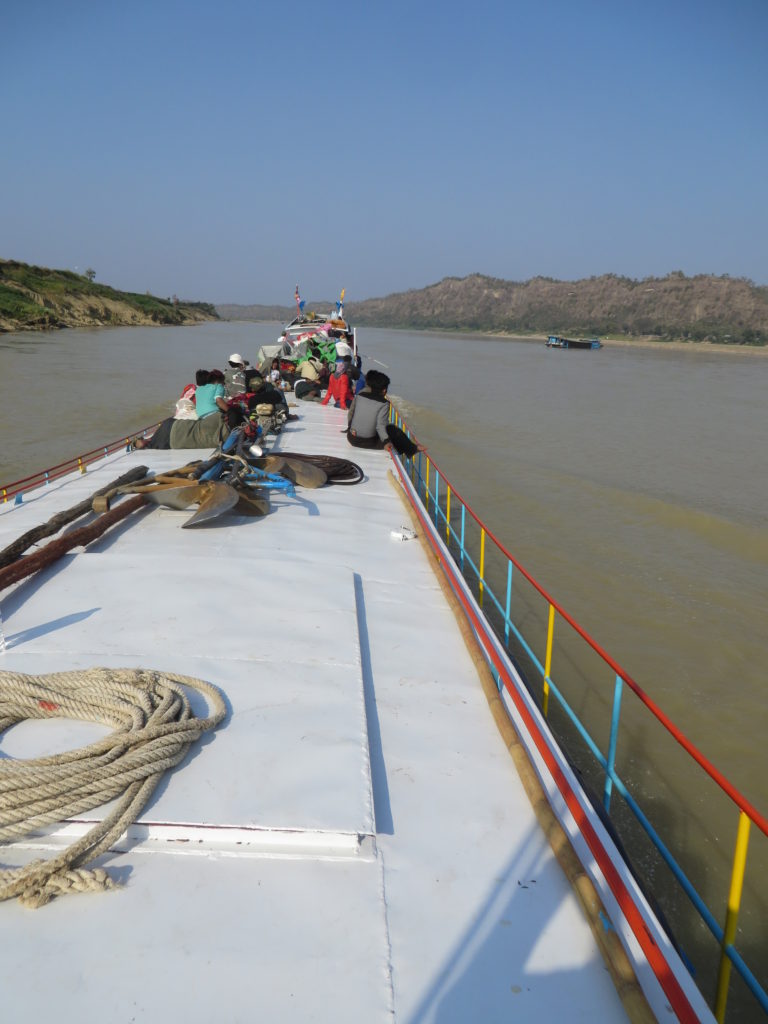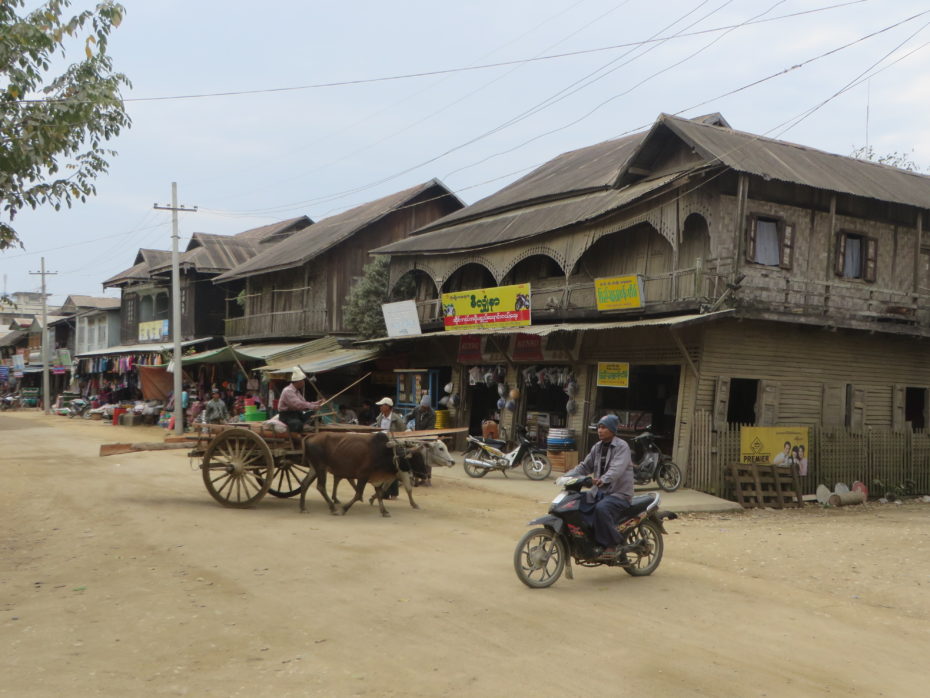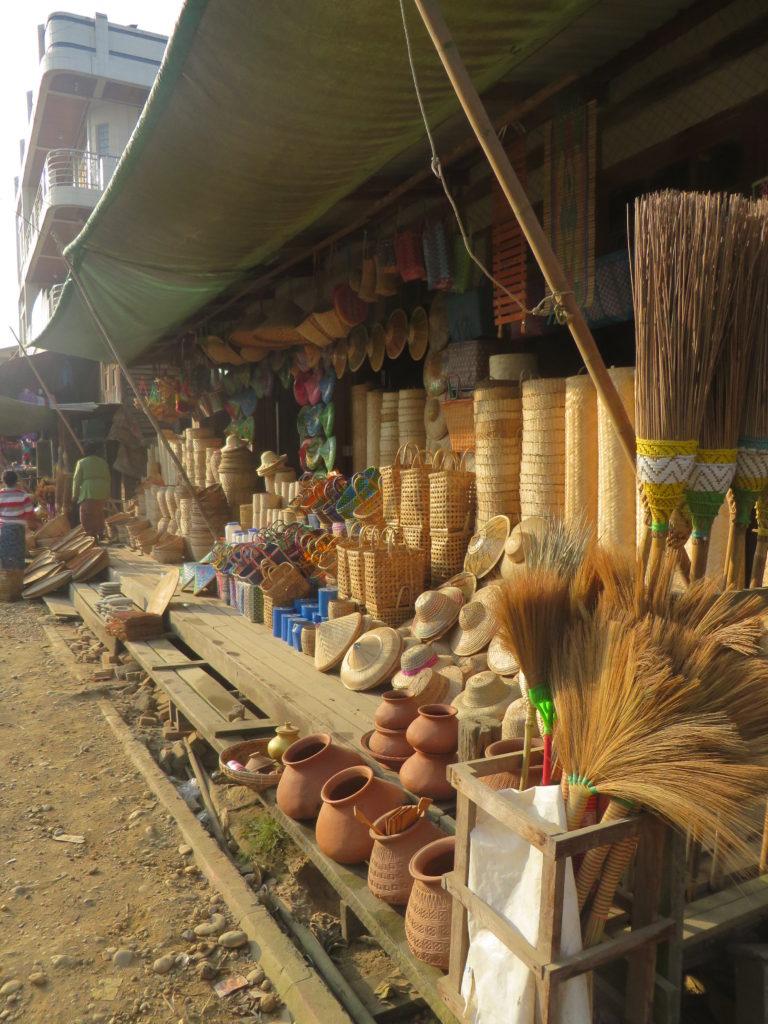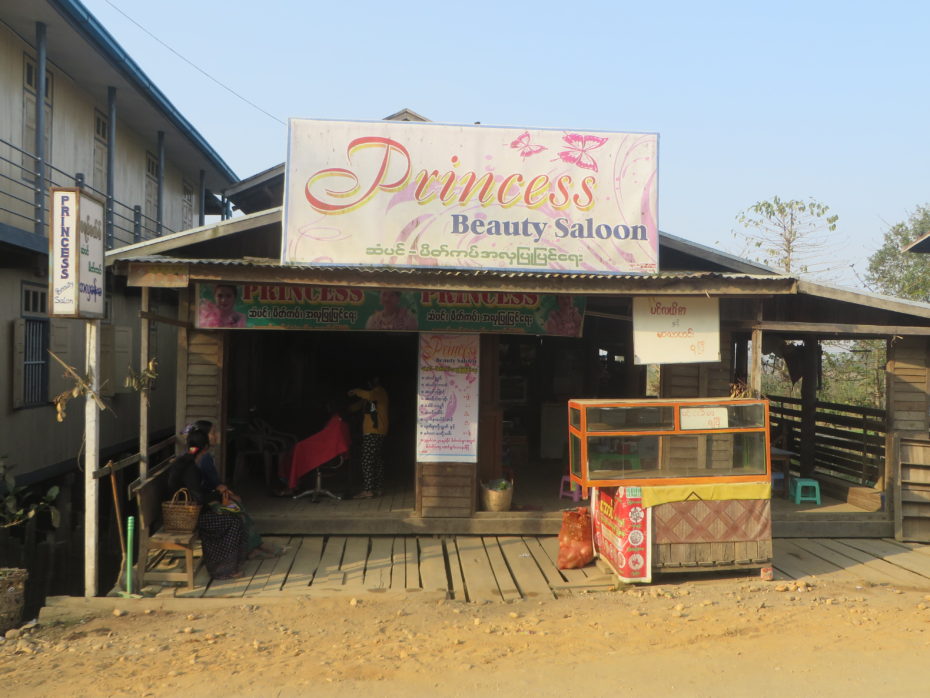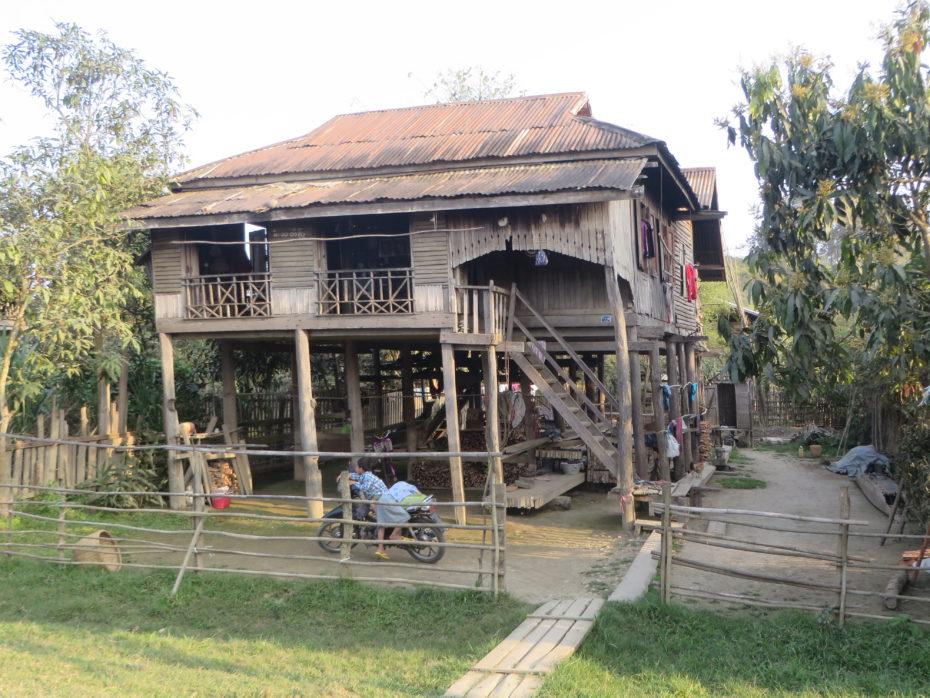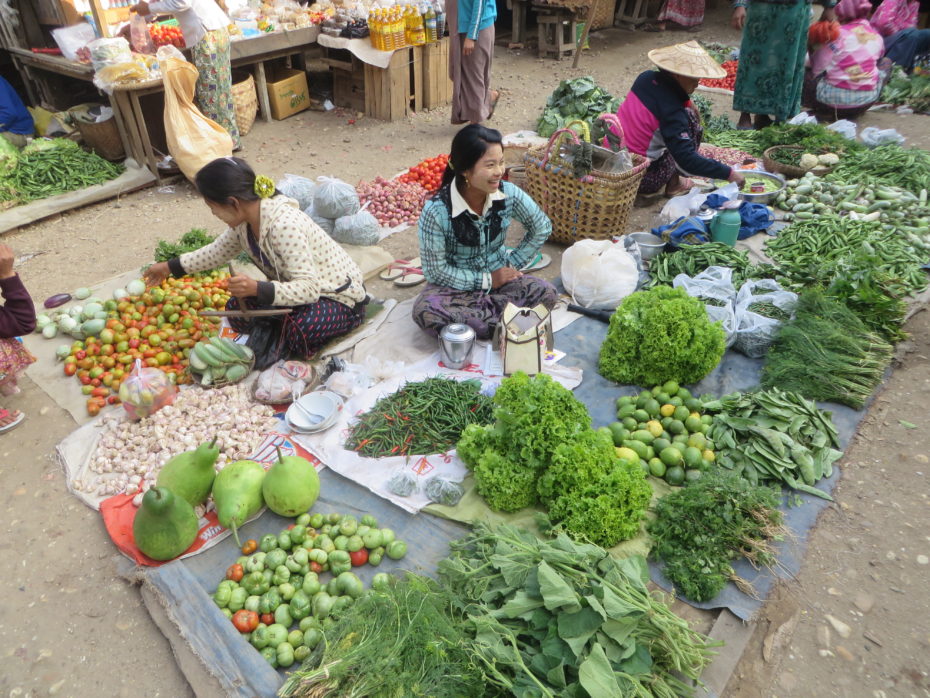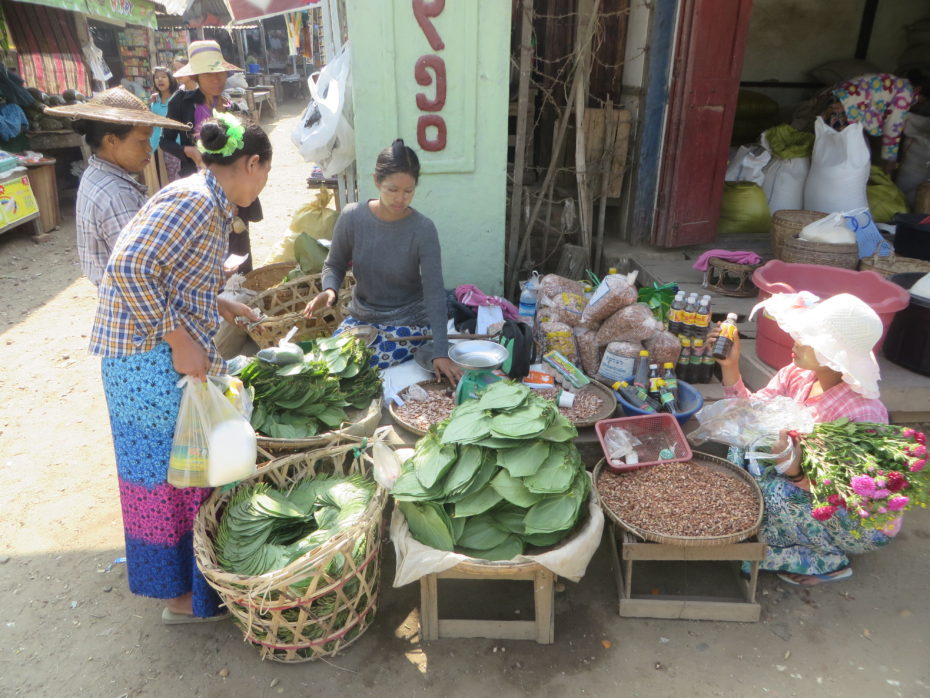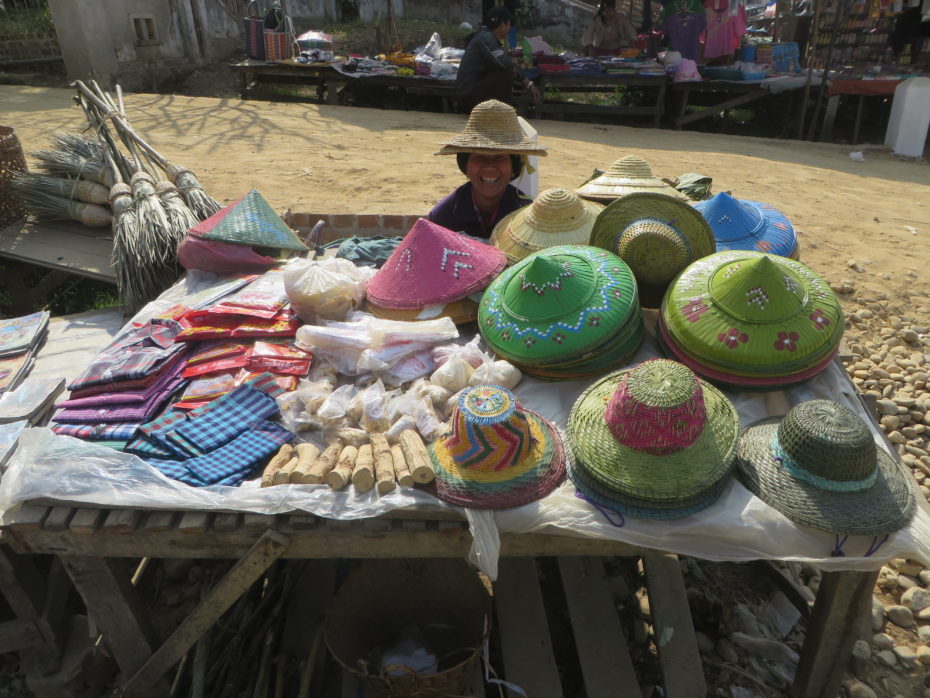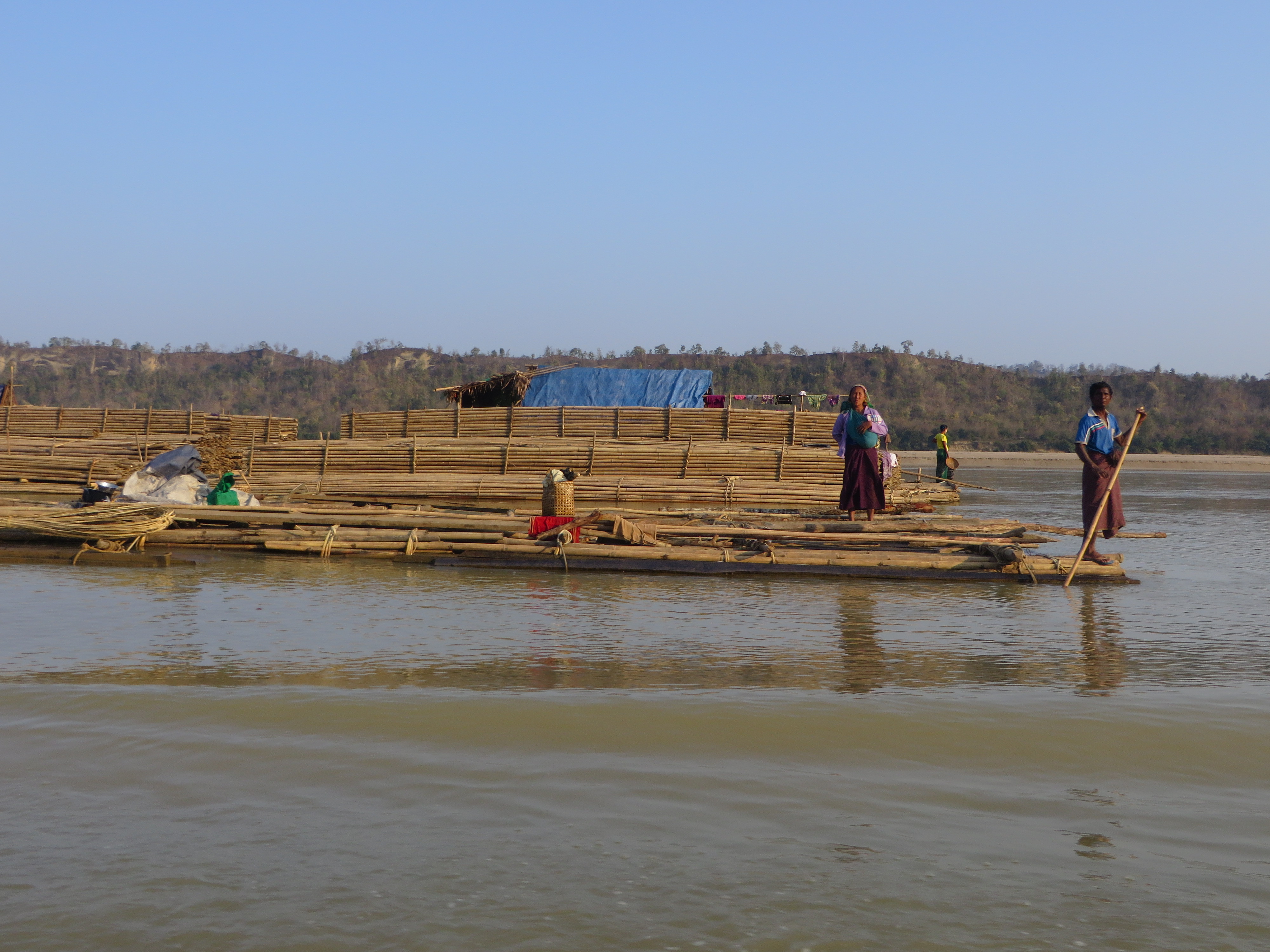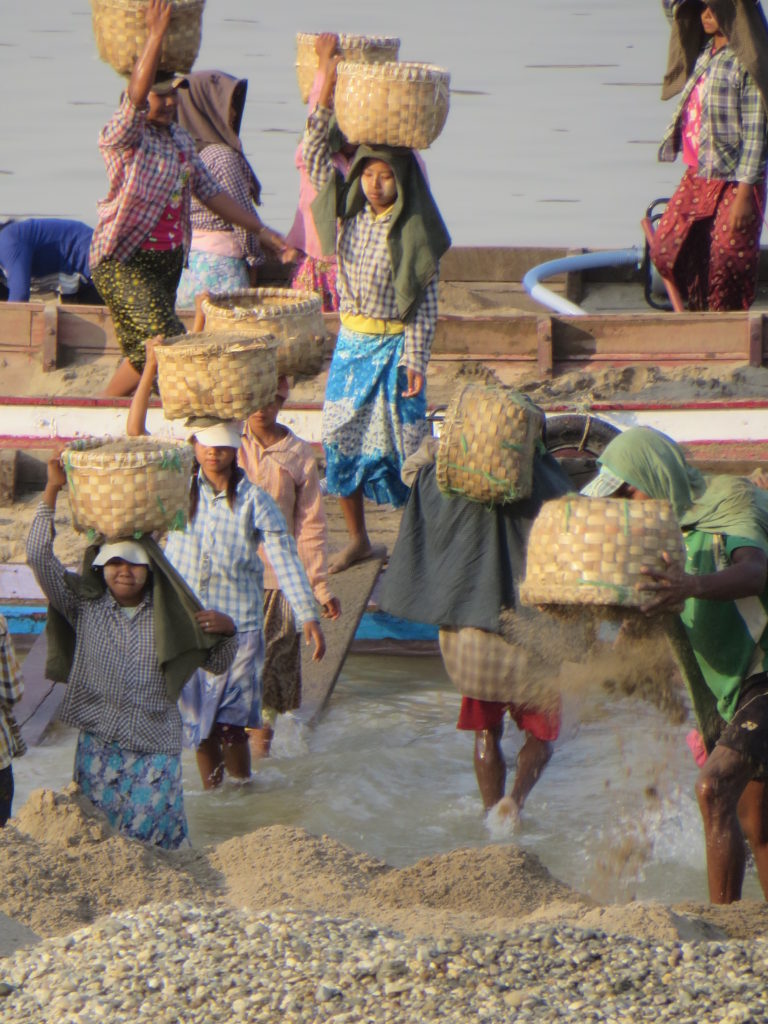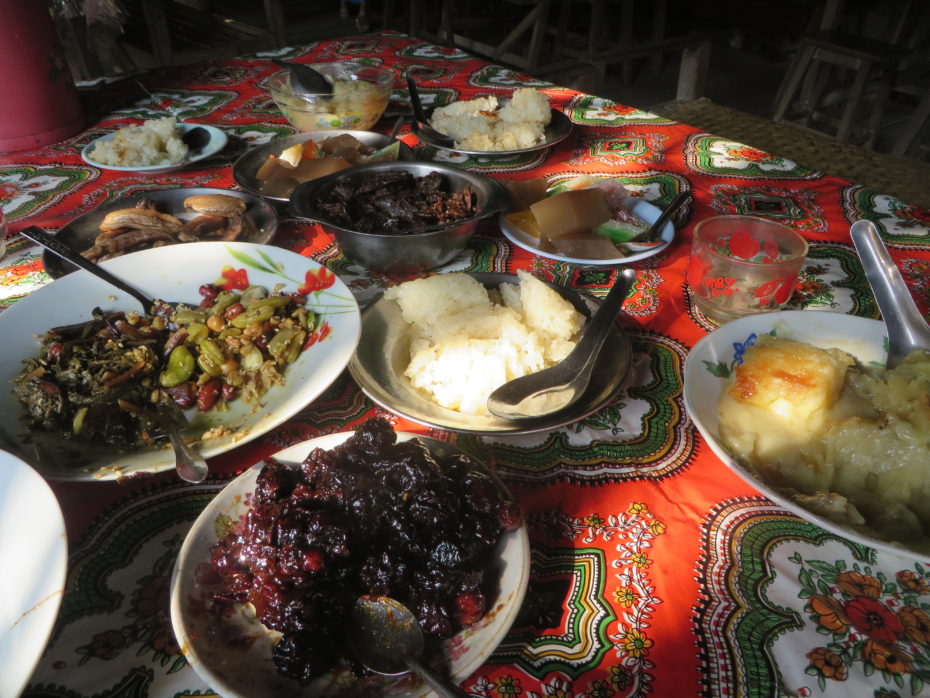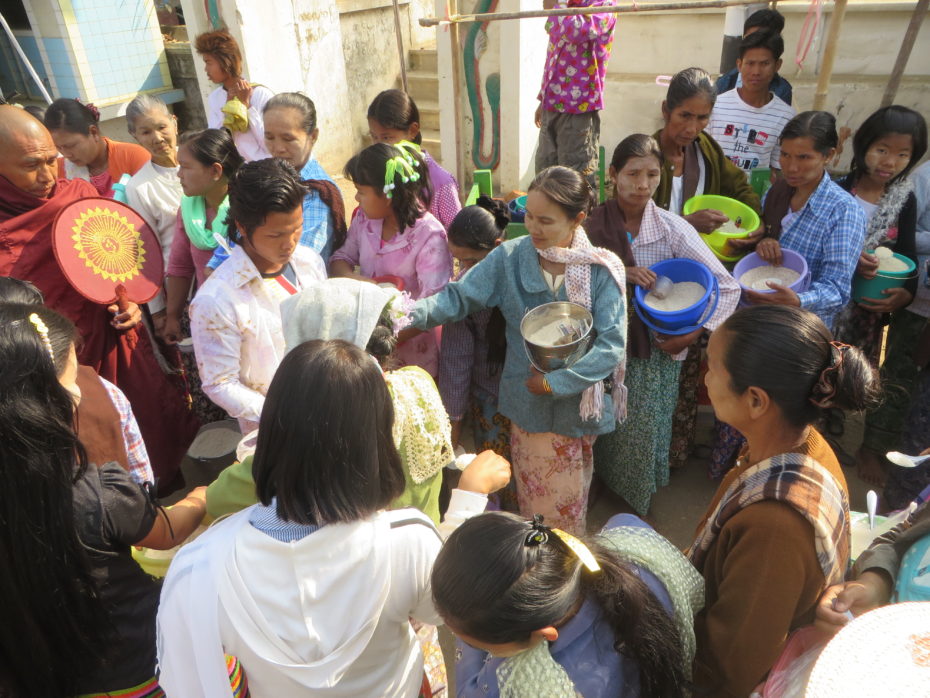The most useful characteristic for a traveler that is rarely mentioned, is having a nice fat arse. Not for any reasons of sexual allure but to provide cushioning on substandard public transport. Staying within the confines of the guidebook routes in Myanmar is demanding enough on the posterior as it is but never was a point so sorely made than after twenty-eight hours on a motor boat up the Chindwin river, in the north-west of the country. If you are a devotee of a good nights sleep then extensive travel here may not be for you, particularly if, like me you tower above even the biggest native of the country and for whom no seating arrangement was ever designed. And one thing I most certainly don’t possess, despite my best efforts at stuffing myself with oil drenched Burmese curries, is a fat arse.
The delightful craft laid on to transport myself and dozens of steel-buttocked locals upriver had all the comfort and serenity of a floating, Soviet tractor. Consequently the soporific charm of the utterly insignificant town of Paungbyin I had chosen as a destination came as a heavenly respite after my limb mangling, sleepless ordeal, even if the nameless shack posing as a hotel provided only cubes of amateur carpentry and cobwebs for rooms. However, at $4 a night it seemed churlish to haggle, particularly when everyone was just so bloody lovely. Even at the tourist hot-spots the Myanmar people put most countries to shame in the welcome stakes but away from the increasingly well-trodden Lonely Planet trail the charm goes up a notch or two. Children make fine ambassadors for the nation as they are well inclined to rush out and greet a foreign face and attempt a, “what your name”? Few, however seem to have got to lesson 2 in English to be taught to respond to the same question but that does nothing to diminish their enthusiasm. Some, barely of walking age, carried by their mothers are capable of offering a vigorous wave and the happy, Burmese hello of “minglaba”, to a strange Englishman in a town undisturbed by troops of foreigners. The level of tourist foot-traffic was soon made clear by a visit from the local Chief of Police, who came to check my credentials. Having quickly assessed that I presented no significant threat to national security he took me out for coffee and cake and a delightful exchange of pleasantries.
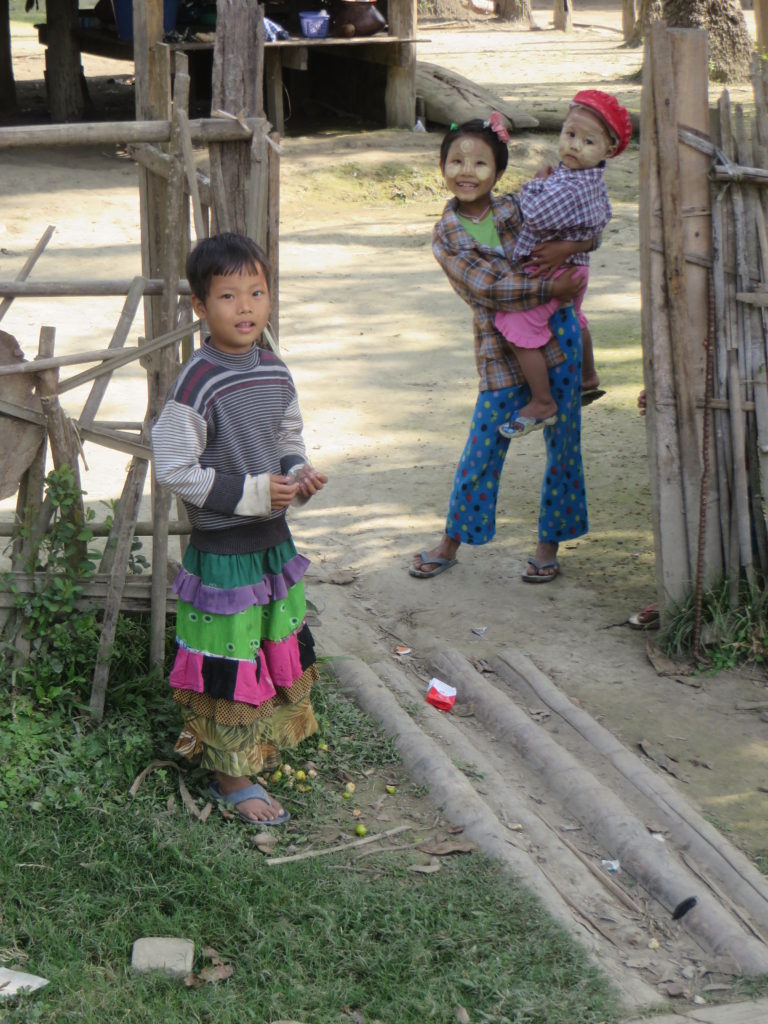
Welcome guaranteed – if you are wondering whats on the kids’ faces its a traditional sun protection paste called Thanaka, made from a tree bark
Pronunciation of the town’s name, like much of the language, leads one to the conclusion that whoever devised the system of transliteration for the Burmese alphabet into English was obviously largely unencumbered by actual knowledge of our mother tongue. Having destinations written in Burmese script will drastically reduce your chances of ending up in completely the wrong place, as an Irish woman I met, found out after a twenty-five hour boat trip in the wrong direction. Outside of the tourist industry English is mostly limited to a few expressions in an almost unintelligible accent. In nearly three days of strolling along virtually every road and path no one offered any guiding services or visiting suggestions in the Paungbyin area, which seems to qualify as outside the tourist industry in my book. There was however, an encounter with a rather inebriated gentleman who had a random acquaintance with the English language, who may have made some suggestions but as he insisted I help him consume his collection of cheap whisky little is certain. He did appear, at least in his own imagination to have a job involving elephants in Yangon but ascertaining further details proved problematic.
Paungbyin is ambling sedately into the twenty-first century and shows little sign of upping the pace of change any time soon. The occasional satellite dish clings nonchalantly to teak framed houses, as ox carts trundle methodically by. Most of the somnambulant high street, as well as many new houses are still made of wood. Beside shops of plastic kitchen ware or mobile phones are hand-woven wicker baskets and tools forged by the local blacksmith. Dress-makers still power their sewing machines with foot treadles as they gaze upon free-range livestock perusing the best deals in the shops. Don’t bother asking for an internet cafe.
At the market the pace kicks up to mildly soporific: ladies in hand painted bamboo hats sell orderly handfuls of lush produce from cottage gardens and the utilitarian creations of the local potter are still much in demand. Heaps of the country’s ubiquitous, chewed stimulant, betel nut, come in all its varieties, whether chopped, diced, sliced or whole. The leaves used to wrap each dose are always painstakingly laid out by hand in precise circles. The efforts at careful presentation and the neighbourly chatter of the closely grouped ladies are a cheerful antidote to the commercial focus in the big towns.
The muddy waters of the Chindwin are a source of commercial opportunity but it’s hardly the equivalent of a motorway thundering with heavily laden juggernauts. It reaches its most hectic whenever a passenger boat stops at the small towns. With nothing so formal as a quayside the prows of the boats are run aground so a gaggle of mostly young women can barge past competitors to vie for sales. A cacophony of competing sales pitches engulfs a boat for the few minutes of frenzied deals before the klaxon sounds and its time to go. Whether it’s an early morning hit of budget, blended whisky and had rolled cheroots, sticky rice cooked in batons of bamboo or fried noodles in polystyrene cartons, all a passengers need are catered for.
Boats chug past great rafts of bamboo deliveries, floating downriver at the sluggish pace of the current. Their lounging crews of serene smiles in meditative contemplation of the tortoise-speed unfurling of the landscape. Surely it’s only in a Buddhist country that commerce could operate at such a geological rate? You could almost hear the anguished screams of western management teams demanding, “why can’t you put a motor on them”? Thankfully such objectionable tossers are confined to the cities and long may it stay that way.
Being the dry season the progress of the boats was somewhat attenuated by encounters with the riverbed, so shallow was the river at times. At such points Burmese men, hardly the tallest nation on earth, would wade, waist deep to assess the depth while the passengers would stand on either side of the boats and rock them from side to side, while the pilot applied surges of brute force to plough through to deeper waters. Unless you were keen on a muddy shower it was best to avoid the rear of the craft on these occasions.
Ten hours back downriver the town of Kalewa could summon up a modicum of hustle and bustle but defiantly resisted a mention on Tripadvisor. Its smidgen of commercial value was probably helped by the stretch of tarmac leading to the nearby border with India but was more than likely hindered by the seven hours of bumpy dirt leading in the opposite direction, before encountering something more worthy of the term road. My buttocks were later to experience a hammering on this very route back to the world of tourism, on an antiquated bus more suited to transporting sacks of potatoes than beings of flesh and blood.
A strip of land qualifying as a harbour saw tons of sand and gravel for construction being off loaded manually. Myanmar displays a sexual equality in the labour market unknown in the West: men and women worked side by side hefting heavy baskets on their heads. Indeed, up and down the country, on road gangs shifting rocks and on building sites shifting bricks, Myanmar’s women are undaunted by a hard day’s work and from what I gather, without the condescension and mocking they would surely face from the men on, say a British building site. Admittedly they would probably prefer to live in the kind of economy where they could use their talents in a less arduous fashion.
I’d conveniently arrived on cue for a Buddhist festival. The finer points of the religious details, along with most of the major ones may have eluded me but, most importantly, I discovered after gorging myself on a sumptuous array of snacks for breakfast that it was entirely free, due to whatever it was we were celebrating. An evening of fun fair entertainment, a stage show, brightly lit stalls of unnecessary purchases and steaming edible delights kept everyone entertained, with not a hint of religiosity. One noteworthy element of Myanmar fun fairs are the man powered ferris wheels: dispensing with anything convenient like a motor, young male operatives climb up the framework of the ride then hang onto a lower bar of the seats to provide momentum, hopefully jumping off before they are committed to high-speed revolutions and a trip to the major fractures ward at the woefully underfunded local hospital.
The women of the town, disinclined to alcohol, unlike some of the male population, were up early the next day to perform their religious duties of ladling rice and banknotes into monk’s bowls as they filed out of the monastery. My own donations later that morning were rewarded with a dose of betel nut to add a bit of zest to my saunter round the dusty alley ways on the outskirts of the town. Unphased by the sight of a strange foreigner walking past their front door I was insistently ushered into the hut of a family in the process of building a new house, where I was plied with copious tea and pudding. With virtually no mutual linguistic compatibility we spent well over an hour in a “conversation” of hand signals and mime, as I was introduced to a steady procession of the entire neighbourhood who had come to check out the novelty of a tourist. A couple took turns in fanning me to offset the heat of midday. After some experimental puffs on a bituminous strength cheroot and two more hits of betel nut I was in an unsurprisingly good mood. Thus, after extended goodbyes I chicaned my way back down the street with a big grin on my face for a well deserved lie down.
If you find yourself in Myanmar and can’t face another round of temples and golden stupas, put the guidebook away and head off into the unknown. I can’t promise there will be much to look at but you will meet some of the loveliest people on the planet. You may want to bring a cushion though.




